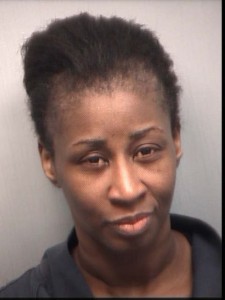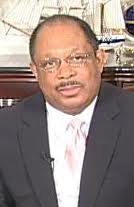Hello World, 
TODAY is the official Dr. Martin Luther King Jr. Holiday! I hope wherever you are – whether at home or work or serving your community, I hope you pause to remember the dream of Dr. King and how he inspired the nation to come together in equality and peace…
One of my friends, Edward  Gilbreath, who is an award-winning journalist and author, and the executive director of communications for the Evangelical Covenant Church, wrote “Birmingham Revolution: Martin Luther King Jr.’s Epic Challenge to the Church” a new book about Dr. King. Below is an interview with Gilbreath about his latest book.
Gilbreath, who is an award-winning journalist and author, and the executive director of communications for the Evangelical Covenant Church, wrote “Birmingham Revolution: Martin Luther King Jr.’s Epic Challenge to the Church” a new book about Dr. King. Below is an interview with Gilbreath about his latest book.
Countless books and articles have been written about Martin Luther King Jr. over the years. What inspired you to share another perspective on King in “Birmingham Revolution?”
Edward Gilbreath: There’s a multitude of books about King and the civil rights movement, but I felt compelled to tell the story from the perspective of an African American evangelical who was born a year after Dr. King’s death. Many people from my generation and younger don’t always have a full picture of who King really was—his courage, his radicalism, his faith, his humanity. I wanted to shed light on these aspects of King and, above all, show the church that everything he did was driven by his Christian faith and values. I also think the evangelical community—especially the white evangelical community—has had an uneasy relationship with Dr. King over the years. They’ve wrestled with embracing his vision of racial and social justice but have struggled with accepting his progressive theology. And at times, they’ve used questions about his theology as an excuse for dismissing him altogether.
I want to show that King’s vision was actually more in tune with a complete understanding of the Christian gospel. That despite his failings as a flawed human being, he was operating out of a God-inspired, prophetic Christian vision of justice and reconciliation. Many evangelicals are just now catching up to what King was articulating fifty years ago. I hope Birmingham Revolution can be an entry way for many evangelicals to discover King anew.
What was significant about Birmingham as a stage for the civil rights movement?
Edward: In 1963 Birmingham, Alabama, was one of the most notorious strongholds of segregation and white supremacy in the South. It was a place described by King as “the most thoroughly segregated city in the United States.” Not only were the public institutions, such as libraries, segregated but it was so severe that even books that contained photos of black rabbits and white rabbits together were banned from the library shelves. It was a city where bullets, bombs and burning crosses served as constant deterrents to blacks who aspired to anything greater than their assigned station of inequality.
There, in April 1963, King and his movement of nonviolent protesters staged a campaign that would transform America. The Rev. Fred Shuttlesworth, a fiery Baptist preacher in Birmingham, had implored King and his Southern Christian Leadership Conference associates to come to Birmingham and help the city’s black community confront segregation. He told them, “I assure you, if you come to Birmingham, we will not only gain prestige but really shake the country.”
He knew that if the movement could change things in Birmingham, it would reverberate throughout the nation.
How is “Birmingham Revolution” different than your mini ebook, “Remembering Birmingham?”
Edward: “Remembering Birmingham” focuses on the events of Birmingham in April 1963 while “Birmingham Revolution” takes a more extensive survey of King’s life, both before and after Birmingham. It’s a dynamic story, replete with action, drama and compelling ideas. I believe the Birmingham campaign was the touchstone for all that came before and all that would follow in King’s brief but remarkable thirty-nine years of life and ministry, and Birmingham Revolution will help readers understand why.
What was the significance of King’s “Letter from Birmingham”?
Edward: The Birmingham campaign started out slowly, but after King was arrested on Good Friday for his movement’s public demonstration on the streets of Birmingham, things began to change. While in solitary confinement, he was shown a newspaper op-ed column by eight moderate clergymen in Birmingham. While they supported civil rights for blacks, they felt King and his movement were going about it all wrong. They implored him to wait for the laws to take effect. But King believed the black community had waited long enough, they needed to take a stand and stir the conscience of Birmingham and of the nation.
His response to the op-ed was a passionate letter that spelled out the reasons why the movement couldn’t wait and pointed out the differences between just and unjust laws. He wrote the letter on the margins of the newspaper, on scraps of any paper he could gather, and when he ran out, he reportedly wrote on the toilet paper in his cell. After its publication weeks later, the “Letter from Birmingham Jail” would become one of the most lucid and convincing arguments for social justice and civil rights that we’ve ever had. What’s more, it was rooted in the theology and principles of the Christian gospel.
Why do you think King was more a “prophet” of social justice?
Edward: It’s easy to want to write Dr. King off as just a leader who gave a good speech. But in doing that, we risk missing the fact that he was vehemently disliked in his day and that as time went on he was becoming increasingly angry and impatient with the pace of change in the nation. Late in his life he wrote that, “Whites are not putting in a mass effort to reeducate themselves out of their racial ignorance.”
While he rejected the militancy of the Black Power movement, he understood the roots of its members’ discontent. As a Christian minister and Nobel Peace Prize recipient, King also felt compelled to speak out against the Vietnam conflict. This also served to land him on some of America’s “most hated” lists. In all these cases, he was speaking out as a prophet of social justice. But that’s typically not the King that we choose to focus on today.
What do you hope readers take away from “Birmingham Revolution?”
Edward: I want people to discover the full humanity of Dr. Martin Luther King Jr., to move beyond viewing him as this gentle “I Have a Dream” character to seeing him as the prophetic and often radical Christian visionary that he was. I want people to discover and rediscover Dr. King’s “Letter from Birmingham Jail” as a message encompassing his holistic vision of the gospel lived out in everyday life. I want people to understand that the civil rights movement was indeed a Christian movement, birthed in the church by a grass-roots movement of ordinary men, women and youth who relied on the Holy Spirit and a gospel-inspired vision to rise to the challenge of confronting the social injustice in their daily lives.
I want my Christian readers to understand that Dr. King’s message continues to have relevance for the church today for our response to issues such as immigration reform, the public education crisis, inequalities in our criminal justice system or racial reconciliation. We are called to live out the truth of the gospel both as a call to personal salvation and social justice.
For more information about Birmingham Revolution: Martin Luther King Jr.’s Epic Challenge to the Church, Edward Gilbreath and other books he was written, go to edgilbreath.com.
Any thoughts?


 My father,
My father,  Join us THIS Sunday, Jan. 19, at 11 a.m. for our 8th Annual Racial Reconciliation Service.
Join us THIS Sunday, Jan. 19, at 11 a.m. for our 8th Annual Racial Reconciliation Service. 

 3. And I saved the best for the last…The Reverend James David Manning of Atlah World Missionary Church has accused President Obama of having Miriam Carey assassinated because she had given birth to their love child…Maybe the reverend missed his calling…With his creative mind, he could probably be a good writer…I wonder if Shonda Rhimes is looking for any new writers for “Scandal?” LOL…Read the story
3. And I saved the best for the last…The Reverend James David Manning of Atlah World Missionary Church has accused President Obama of having Miriam Carey assassinated because she had given birth to their love child…Maybe the reverend missed his calling…With his creative mind, he could probably be a good writer…I wonder if Shonda Rhimes is looking for any new writers for “Scandal?” LOL…Read the story